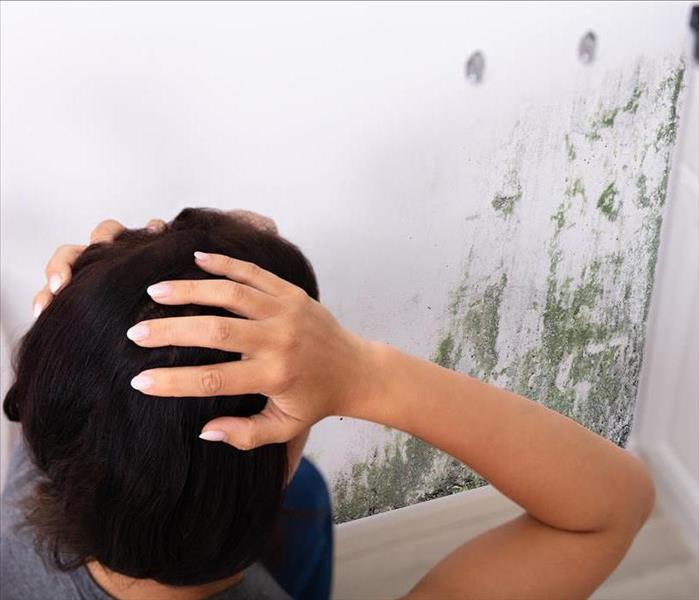What Is Spreading Mold in Your Home? 4 Essential Questions To Consider
3/24/2022 (Permalink)
Fungus is a natural organism that breaks down organic material. It's helpful to break down old logs, leaves and debris. Outside the home, the microbes serve a valuable purpose, helping nature in the circle of life. However, inside the house, the spores are not so friendly. An active growth could mean your drywall and wooden structures face decomposition.
Therefore, it's critical to know what is spreading mold within the home so you can minimize damage. Take some precautions now, and understand the main contributing factors. This knowledge allows you to recognize growth early and respond appropriately. The following are four significant factors to consider.
Factors to consider about the spread of mold
1. Are You Spreading Mold?
Yes, you very well could be bringing mold inside. Microbes exist everywhere. They are outside on the ground. They are on branches and trees. It's probably even on your shoes. Any day of the week, they could hitch a quick ride into the house. However, this spread isn't likely to cause too many issues. The fungus doesn't decompose material until it reacts with moisture and organic material.
Don't touch it with your hands if you see discoloration or smell an unusually foul odor. Don't wear those shoes throughout the house. Call in mold technicians instead to handle the situation.
2. Is the Air Current a Concern?
One of the most common methods for mold to migrate is through the air. Their microscopic size makes it easy for wind and air conditioners to impact their location. If an active growth starts within the space, the air movement could influence the overall impact.
Contacting a mold remediation company in Rocky Mount, NC, is essential. The professionals assess the fungus and ducts. If needed, they can scrub and close off some vents to avoid further contamination. The HVAC system can offer benefits too when active growth isn't present. By limiting the room's moisture, owners may reduce the chance of spore growth. Use it to maintain a cool, dry climate.
3. Are Your Cleaning Habits Making Things Worse?
Bleach and other household cleaners kill surface germs. Use them to freshen countertops and scrub away the grime. They do not, however, penetrate porous materials. Spores do. Therefore, household cleaners do not eliminate infestation. They hide it.
Instead of spraying it down, turn to experts who can evaluate the space. The specialists look for the water source, determine how to fix it and extract the infected material.
4. Do You Have Lingering Plumbing Issues?
If you don't want to see black mold, concentrate on keeping the property dry. Many owners shrug off minor plumbing troubles. The sink drips a bit. The bathroom grout may have a few blackish spots. These minor problems, however, are sources or signs of fungus. If you leave them unattended, microbes prosper.
Take proactive measures. Check under cabinets regularly, ensuring faucets and lines work correctly. Observe water bills for unexplained price hikes, catching signs of leaks early. Clean up dampness immediately.
Can you stop what is spreading mold? You can work against it by limiting the catalysts and air movement. Keep your home cool, the air conditioner working correctly and the ducts clean. In addition, eliminate spores appropriately with professional services who fix water damage as soon as possible.




 24/7 Emergency Service
24/7 Emergency Service
